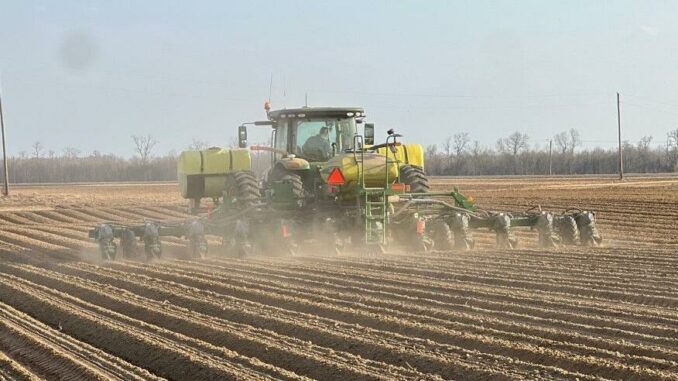
This year, many farmers across the state will likely reduce their cotton acreage, Deliberto said, due to persistent low prices for the commodity, which is hovering around 80 cents per pound.
Last year, it rose as high as $1.30 per pound.
Cotton also costs more to grow than corn and soybeans, he said.
That’s a problem for Hardwick, who invested in two new pickers, which can cost a half million dollars or more, and plans to plant about 2,000 acres of cotton this year, down from about 2,200 last year.
A truck loaded with sugar cane heads south on LA-1 through traffic, Friday, November 4, 2022, in Iberville Parish as sugar cane farmers work through harvest season.
“Cotton is a little scary for us right now,” he said. Hardwick’s break-even price for cotton is around 92 cents per pound.
Will Ratliff, another Tensas Parish farmer, has gone even further in reducing his cotton acreage.
“I am going to have 400 acres of cotton versus 1,100 last year,” he said. “I’m replacing all of that with corn.”
His corn acreage is going from 1,500, to up more than 2,000, Ratliff added. With corn at high prices — around $5.50 or $6 per bushel — the decision to add more was a “no brainer,” he said.
Long cycles
For Louisiana’s other major crops, the outlook is somewhat mixed. Soybeans and sugar cane are probably looking at good years, but rice prices have not risen like corn prices have, and that has put some pressure on farmers, according to Meryl Kennedy, who runs a rice farming and milling operation in Morehouse Parish, on the state’s border with Arkansas.
“This year’s adding up to be fairly volatile, as most industries are right now,” she said, citing the banking issues and the war in Ukraine.
Some input costs are down, but interest rates and stagnant prices are eating up the savings on inputs, she said. Those conditions won’t be fixed quickly, she said.
“It’s going to be an expensive crop, even if it’s a little bit better than last year,” she said. “It will take several years to get out of that cycle.”

Leave a Reply